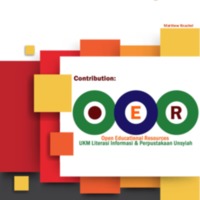Fundamental Methods of Logic
Dublin Core
Description
There’s an ancient view, still widely held, that what makes human beings special—what distinguishes us from the “beasts of the field”—is that we are rational. What does rationality consist in? That’s a vexed question, but one possible response goes roughly like this: we manifest
our rationality by engaging in activities that involve reasoning—making claims and backing them up with reasons, acting in accord with reasons and beliefs, drawing inferences from available evidence, and so on.
This reasoning activity can be done well and it can be done badly—it can be done correctly or
incorrectly. Logic is the discipline that aims to distinguish good reasoning from bad. Since reasoning is central to all fields of study—indeed, since it’s arguably central to being
human—the tools developed in logic are universally applicable. Anyone can benefit from studying
logic by becoming a more self-aware, skillful reasoner.
This covers a variety of topics at an introductory level. Chapter One introduces basic notions, such as arguments and explanations, validity and soundness, deductive and inductive reasoning; it also covers basic analytical techniques, such as distinguishing premises from conclusions and diagramming arguments. Chapter Two discusses informal logical fallacies. Chapters Three and
Four concern deductive logic, introducing the basics of Aristotelian and Sentential Logic, respectively. Chapters Five and Six concern inductive logic. Chapter Five deals with analogical and causal reasoning, including a discussion of Mill’s Methods. Chapter Six covers basic
probability calculations, Bayesian inference, fundamental statistical concepts and techniques, and common statistical fallacies.
Creator
Source
https://dc.uwm.edu/cgi/viewcontent.cgi?referer=http://open.umn.edu/opentextbooks/BookDetail.aspx?bookId=491&httpsredir=1&article=1000&context=phil_facbooks
Publisher
Contributor
Rahmah Agustira
Rights
Creative Commons
Type
Files
Collection
Citation
Matthew Knachel , “Fundamental Methods of Logic,” Open Educational Resources (OER) , accessed March 4, 2026, https://oer.uinsyahada.ac.id/items/show/273.


